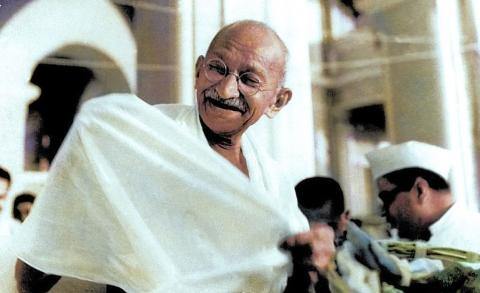
As a publisher and journalist, I know the free speech protections of the First Amendment are at the core of what we do and are held as the most sacred pillar of the free press in America.
Few countries enjoy the same liberties that ensure the anyone -media or individuals- are free to express their opinions, criticize our leaders, and even protest in the streets if we feel change is needed to address injustices, inequities, or misdeeds by our government.
Basically, everyone is entitled to speak their minds with very few exceptions. Of course, we all know we can’t yell FIRE in a crowded theatre is there is no fire or threaten to kill someone or incite violence, but pretty much, all else goes.
We can call our president out on his actions, we can rally against government policies, and we can even burn an American flag in protest of our country without fear of arrest, prosecution, and prison. The government cannot pass laws to quiet our speech, stop our press, or squash protests.
“Congress shall make no law respecting an establishment of religion, or prohibiting the free exercise thereof; or abridging the freedom of speech, or of the press; or the right of the people peaceably to assemble, and to petition the Government for a redress of grievances.”
Those 45 words, written more than 230 years ago, have been upheld and protected by several Supreme Court decisions, and are the backbone of our personal freedoms.
But the protections of the First Amendment are actually quite limited in protecting us from private citizens, from each other, and even from employers. With freedom comes responsibility, but most Americans are unaware of the difference.
Much has been made in recent weeks about protests, boycotts, and complaints against racial injustices and outright racism in the aftermath of the death of George Floyd as he was detained by Minneapolis police officers. Floyd’s death, like many others before his, sparked protests that have now led to real changes in our country; the firing and prosecution of police officers, the banning of Confederate flags by NASCAR and the US military, the removal of the Confederate statues, and Mississippi’s decision to remove the Confederate flag from its official state flag, just to name a few.
Our country seems to be making real change for the better.
But one of the most effective ways that the public has expressed its opposition to racial injustices and discrimination has been through boycotts of TV shows, personalities, brands, and products, using economic purchasing power to influence companies directly, or by causing sponsors to abandon TV shows or personalities that endorse their brands in hopes of avoiding the public’s backlash against their products.
Economic protests have historically played an important role in peaceful opposition to companies, policies, and actions, from Martin Luther King Jr.’s 1955 bus boycott in Montgomery Alabama to Cesar Chavez’s boycott of grapes until field workers receive better wages and working conditions.
In 1980, the US refused to send to send athletes to the Olympics in Moscow, and in 1997 Southern Baptist churches boycotted Disney because they felt the company’s depiction of gays was “anti-Christian and anti-family”.
People and companies that have been the targets of recent boycotts have responded by claiming that critics are violating their freedom of speech or that the boycotts are a new “cancel culture” that seeks to punish those with opposing views.
In June, Fox News political anchor Tucker Carlson received enormous backlash when he dismissed the Black Lives matter movement as “definitely not about black lives”and warned his viewers to “Remember that when they come for you, and at this rate, they will.” After people complained that Carlson was inciting fraction between whites and blacks, several big advertisers, including T-mobile and Papa John’s Pizza pulled their advertising on Carlson’s show. A similar drop in advertising happened in 2018 after Carlson said mass-immigration “makes our country poorer, and dirtier, and more divided.”
Similarly, Fox host Laura Ingraham lost advertisers in 2018 after she mocked Parkland school shooting survivor, 17-year old David Hogg, after he was not accepted to several universities, saying “David Hogg Rejected By Four Colleges To Which He Applied and whines about it” and retweeting a story that called Hogg a “Gun Rights Provocateur”.
Hogg responded by Tweeting a list of Ingraham’s top 12 sponsors and asking followers to “Pick a number 1-12 contact the company next to that #”. Several companies, including Johnson & Johnson, Wayfair, Nestle, and TripAdvisor responded that they condemned Ingraham’s comments and would review or end their sponsorship of her show.
Predictably, both Carlson and Ingraham, along with one of their biggest fans, Donald Trump, complained that a new punitive “cancel culture” was attacking the hosts First Amendment rights and trying to silence their important voices. Other conservatives jumped on the bandwagon and decried the use of boycotts to respond to statements make by Carlson and Ingraham.
The new rallying cry for conservatives was to cancel the cancel culture, claiming that it was a form a bullying that they would not stand for.
But you don’t have to look very far at all to see that the same form of boycott has been used by the very people that are now protesting the protest, namely, Carlson, Ingraham, and yes, especially, Donald J. Trump himself.
Remember when then-San Francisco 49ers Quarterback Colin Kaepernick began kneeling during the National Anthem and Donald Trump protested? What did the President of the United States do?
First, he said he would love to see an NFL owner say ‘Get that son of a bitch off the field right now” then he said the NFL would fail because people would stop attending games and watching them on TV because of the silent kneeling.
Trump supported fans boycotting the NFL because team owners did not stop Kaepernick and other players from kneeling in silent protest. Trump and others turned the players’ protest against racial injustices in the United State into what he called an insult to the US military and the US flag.
Basically, Trump supported a counter protest to the silent protests. And how? Ironically, by abandoning the NFL, or a form of cancel culture.
So, the “liberal mob” that Carlson said was punishing him by pressuring advertisers to drop their sponsorship of his program was wrong, but Trump encouraging fans to stop watching or attending games because they disagree with Kaepernick kneeling wasn’t an angry mod, it was just people expressing their freedom of speech?
I know it’s confusing. But it shouldn’t be.
Peaceful protests and using purchasing power and economic impacts to bring about change have historically been used with great success and avoiding bloodshed.
Mahatma Gandhi’s opposition to British Imperialism of India is a famous example of protests that pushed back against one of the most powerful countries in the world.
Mot people remember Gandhi’s 17 fasts to protest a variety of issues from British colonialism to local working conditions, but his greatest protest was against British clothing.
Gandhi had studied law in London for three years and, as a young man, wore traditional three-piece suits, ties, and even top hats that were common in the early 20th Century. But when he began his protests against British rule of India, he asked Indians to stop buying clothes made of British cloth, and asked Indians to instead made their own simple clothes. The economic effect on British companies helped lead to indigenous support for the independence movement, and solidified Gandhi’s standing as a peaceful protester, and his signature look in simple villager clothing was born.
The world has been peaceful economic protests throughout history, and the US has achieved great social changes because of marches, protests, boycotts, and mass mobilizations.
Today’s boycotts are nothing new. Economic protests are not bad. They’re better than the violent alternatives that could happen if people are constrained from expressing their frustrations.
We should understand, acknowledge, and support social change through activism, not discourage it. So let’s cancel the anti-cancel culture movement. We should all be free to use our decisions, personal and financial, in ways that express our beliefs and opinions.
That’s the ultimate expression of the freedoms we enjoy and claim to cherish.
